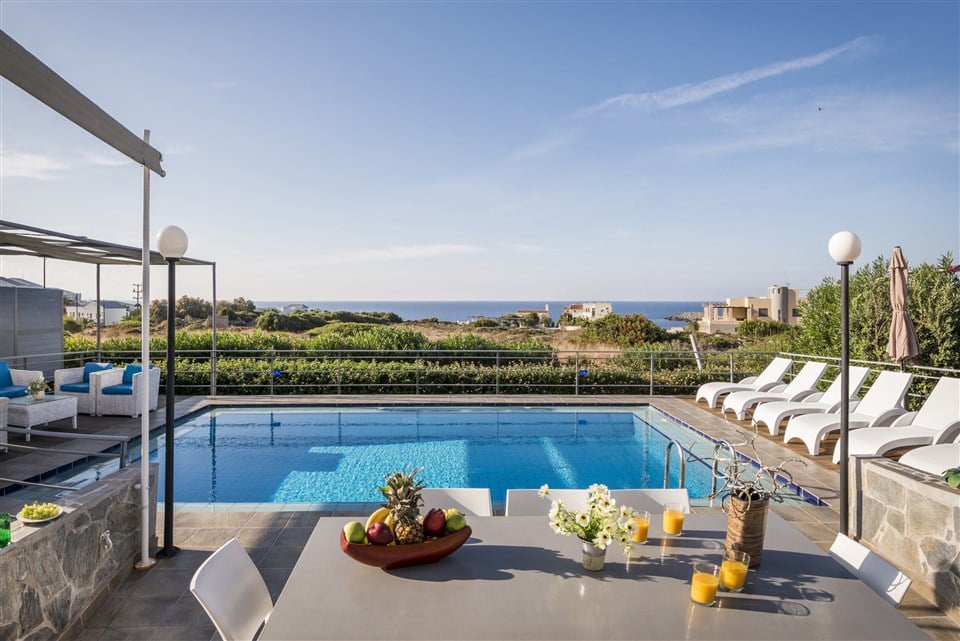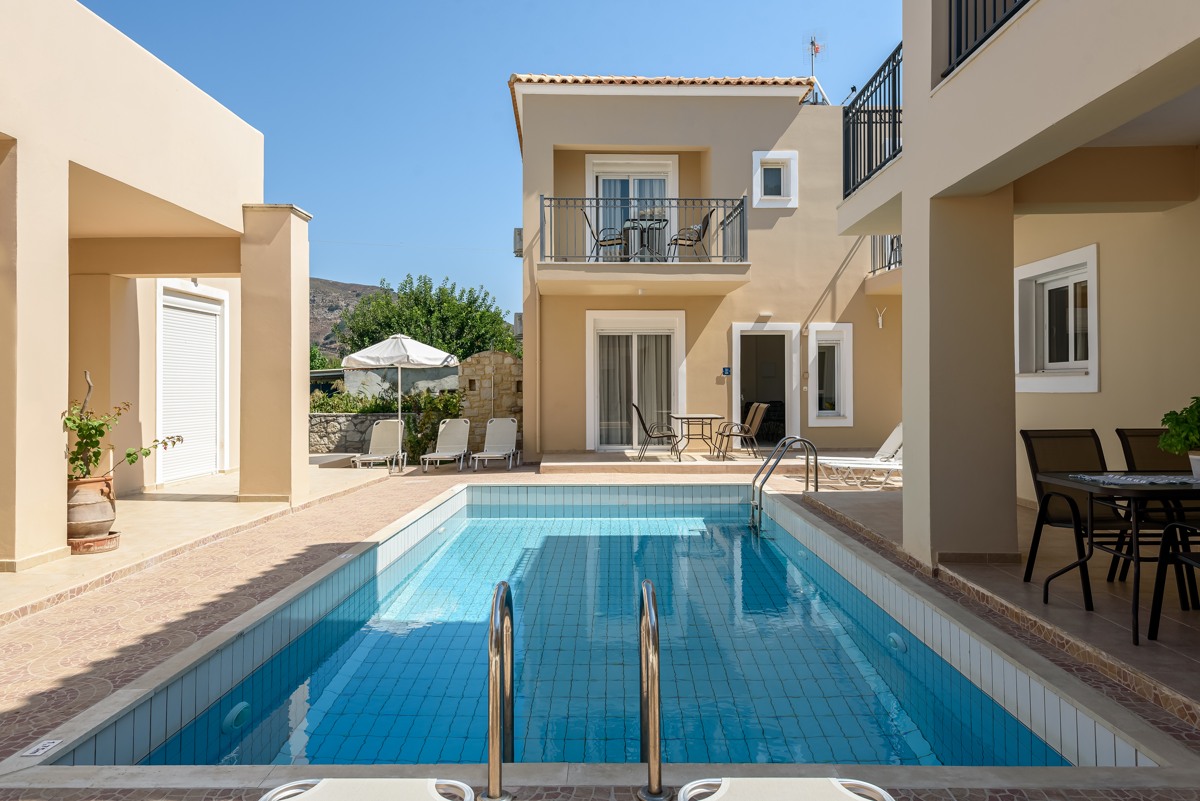Voor veel huiseigenaren is het bouwen van een privézwembad een levenslange droom Griekenland.In de zomermaanden kun je dankzij een eigen zwembad in de tuin heerlijk genieten van de frisse koelte en privacy, wat het dagelijks leven een stuk aangenamer maakt en ook de waarde van je eigendom verhoogt. Net als bij elke bouwkundige ingreep stelt de Griekse wetgeving duidelijke voorwaarden en vergunningseisen, afhankelijk van de vorm, grootte en wijze van installatie.
Wanneer is een kleinschalige bouwvergunning vereist?
Deze optie is beschikbaar voor eigenaren die een zwembad van maximaal 50 vierkante meter willen plaatsen, zonder permanente of zware constructieve ingrepen. Volgens de huidige wetgeving is in dit geval een vergunning voor kleinschalige bouwwerkzaamheden vereist. Dit is een eenvoudigere en snellere procedure dan een volledige bouwvergunning. Toch blijft deze vergunning verplicht als het zwembad, ook al is het niet groter dan 50 vierkante meter, permanent wordt geïnstalleerd en een mechanische installatie nodig heeft.
De voorwaarden
De wet stelt duidelijke voorwaarden om een zwembad in deze categorie te laten vallen: het mag nergens hoger zijn dan één meter boven het natuurlijke grondniveau, en het uitgraven of ophogen van de grond mag niet dieper of hoger zijn dan 1,5 meter. Daarnaast moet het zwembad worden aangedreven door compacte, externe mechanische systemen. Ook moet de verplichte beplanting in de daarvoor bestemde open ruimte behouden blijven, zoals voorgeschreven. Bij de aanvraag moet bovendien een officiële verklaring van een ingenieur worden meegestuurd, waarin hij of zij de verantwoordelijkheid neemt voor de structurele en technische veiligheid van het zwembad.
Belangrijk is dat als de constructie een betonnen fundering (gewapend beton) omvat, het project niet langer in aanmerking komt voor een kleinschalige vergunning en in plaats daarvan het standaard bouwvergunningsproces volgt.

Wanneer is een grootschalige vergunning vereist?
Als het gewenste zwembad groter is dan 50 vierkante meter of bouwkundige werkzaamheden vereist, zoals gewapend beton, keerwanden, diepe uitgravingen of andere ingrijpende constructies, is een uitgebreide bouwvergunning nodig. Deze procedure is uitgebreider en vereist een volledig dossier met onder andere bouwtekeningen, constructieberekeningen, topografische kaarten en alle benodigde goedkeuringen van de relevante instanties.
Hoe wordt de vergunning afgegeven?
De vergunning wordt afgegeven door een civiel ingenieur via het daarvoor bestemde online platform, en de voortgang van het project wordt zorgvuldig gevolgd en volledig gedocumenteerd. Deze procedure is verplicht wanneer de aanleg van het zwembad het terrein duidelijk verandert, of wanneer het zwembad onderdeel uitmaakt van een groter bouwproject.
Het is belangrijk om te benadrukken dat de bouw van een zwembad niet zonder enige vergunning is toegestaan, zelfs niet als het om een klein reservoir gaat. De wetgeving is duidelijk en streng als het gaat om permanente installaties, ongeacht de grootte. De enige soorten zwembaden die geen goedkeuring nodig hebben, zijn volledig tijdelijke zwembaden, zoals opblaasbare of prefab metalen zwembaden, die niet structureel aan het pand zijn verbonden en geen afwaterings-, filter- of waterzuiveringssystemen hebben.

Wat moet je nog meer weten?
Tot slot is het belangrijk om te vermelden dat, naast de technische eisen, het ook essentieel is om het juridische kader van het gebied waar het pand zich bevindt te controleren. Over het algemeen is het bouwen van een zwembad in de meeste gebieden toegestaan; echter zijn er specifieke locaties, zoals milieubeschermingsgebieden, traditionele dorpskernen of kustgebieden, waar de aanleg van zwembaden beperkt of verboden is. Daarom is het essentieel om samen te werken met een ervaren ingenieur om te zorgen dat het project volledig legaal en technisch veilig is.
Conclusie
Samengevat hangt de keuze voor de juiste vergunning vooral af van de grootte, het type en de bouwmethode van het zwembad. Als je van plan bent een zwembad op je grond te laten plaatsen, is de eerste stap om een bouwkundig ingenieur te raadplegen. Die zal je situatie beoordelen en je stap voor stap begeleiden bij het verkrijgen van de juiste vergunning. De bouw van een zwembad vereist een technische inspectie en moet voldoen aan de geldende stedenbouwkundige voorschriften om het project legaal en probleemloos te laten verlopen.


































